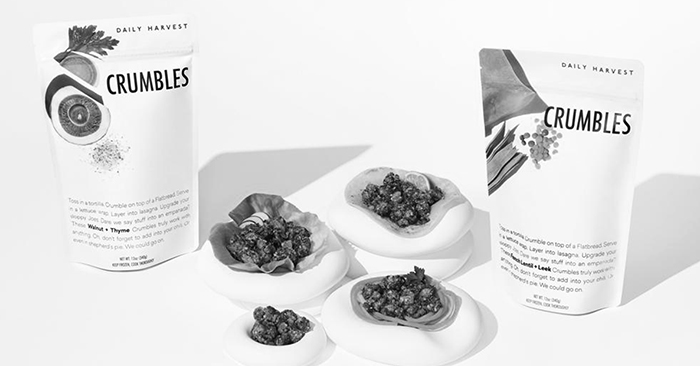The Checkout: NotCo Takes on the “Taste of Love”; Daily Harvest Hit With Class Action Suit
Welcome to The Checkout: an express lane for the weekly news you need to know, always 10 items or less.

NotCo Secures AI Patents To Discover Taste of Emotions
Food tech platform NotCo announced it has secured a new set of patents for its AI technology, named Guissepe, that allow it to develop scents and aromas that conjure human emotions and memories from plant-based essences. According to the company, the technology has the capacity to create flavors “that evoke feelings like falling in love for the first time or the smell of childhood.”
“Flavor will always reign supreme, but what we feel when we smell our food is a powerful nuance,” said Karim Pichara, co-founder and CTO at NotCo, in a press release. “Smells and aromas are a critical part of motivating more people to adopt plant-based options long-term. These new patents further strengthen the experience by creating plant-based products that taste, function, and smell just like their animal-based counterparts. By matching the nostalgic smells people associate with certain memories and emotions we’re opening a new avenue for them to make the switch to plant based.”
The new technology breaks down taste at a molecular level, said NotCO, and then decodes how our brains react to the taste, including interpreting the emotion it associates with the flavor and aroma. NotCo then recreates that experience with specific flavors and smells using plant-based ingredients.
The plant-based food maker said it will begin integrating this technology into its new and existing product lines, including joint ventures and product partnerships. The company said this technology will accelerate consumer adoption of plant-based foods as the aromas get them another step closer “to replicating the true experience of animal-based products but with only plant-based molecules.”

Daily Harvest Crumbles Cause Class Action Case
Direct-to-consumer food company Daily Harvest was hit with a class action lawsuit this week after its newly launched alt-protein French Lentil & Leek Crumbles product caused hundreds of consumers to seek medical attention. The lawsuit was filed in New York District Court by an Oklahoma woman who was hospitalized after eating the crumbles and had to have her gallbladder removed.
The company voluntarily recalled the product last week, discontinued its production and said that both internal and external experts were looking into the issue. According to a press release from the FDA, the CDC and “local partners” are investigating the consumer complaints including gastrointestinal illness and abnormal liver function.
Daily Harvest CEO Rachel Drori also provided an update on the issue stating that so far, all tests covering common food-borne pathogens, toxins and allergens have come back negative.
“At this point, despite consulting with numerous experts, cooperating with FDA’s investigation, working with our supply chain, and conducting extensive testing, we have not yet identified a cause,” she said in a statement.
Drori noted that the company can confirm the issue is isolated to the alt-protein SKU and no other Daily Harvest product has been flagged for causing any issues. At least 470 people have reported becoming sick from eating the crumbles, according to Daily Harvest, with many of the cases resulting in liver and gallbladder damage.

Hormel Deepens Regenerative Ag Commitments
Hormel will sponsor a 50,000-acre regenerative-agriculture pilot project in central and southwest Minnesota, the company announced this week. Through the initiative, farmers are provided with a financial incentive to adopt regenerative techniques like minimal or no soil tillage, regular crop rotation and cover cropping.
The project supports the global food company’s 20 By 30 Challenge which includes 20 environmental, social and governance (ESG) goals for the company to reach by 2030. Additionally, Hormel’s Applegate brand of meat products recently launched Do Good Dog, a hot dog verified by the Land to Market regenerative agriculture program and made from beef that contributes to the regeneration of over 260,000 acres of soil by rotating crops and livestock on the land.
“Regenerative agriculture requires an essential mental shift from the way we currently think about farming – it’s not the cow, it’s the how,” said Gina Asoudegan, a regenerative agriculture leader at Applegate and member of Land to Market’s Regenerative Leadership Council.
The company also announced it has invested in renewable energy products in northern Texas, Oklahoma and Nebraska which also contribute to its ESG goal to match all of its domestic energy use with renewable sources by the end of the year.


















